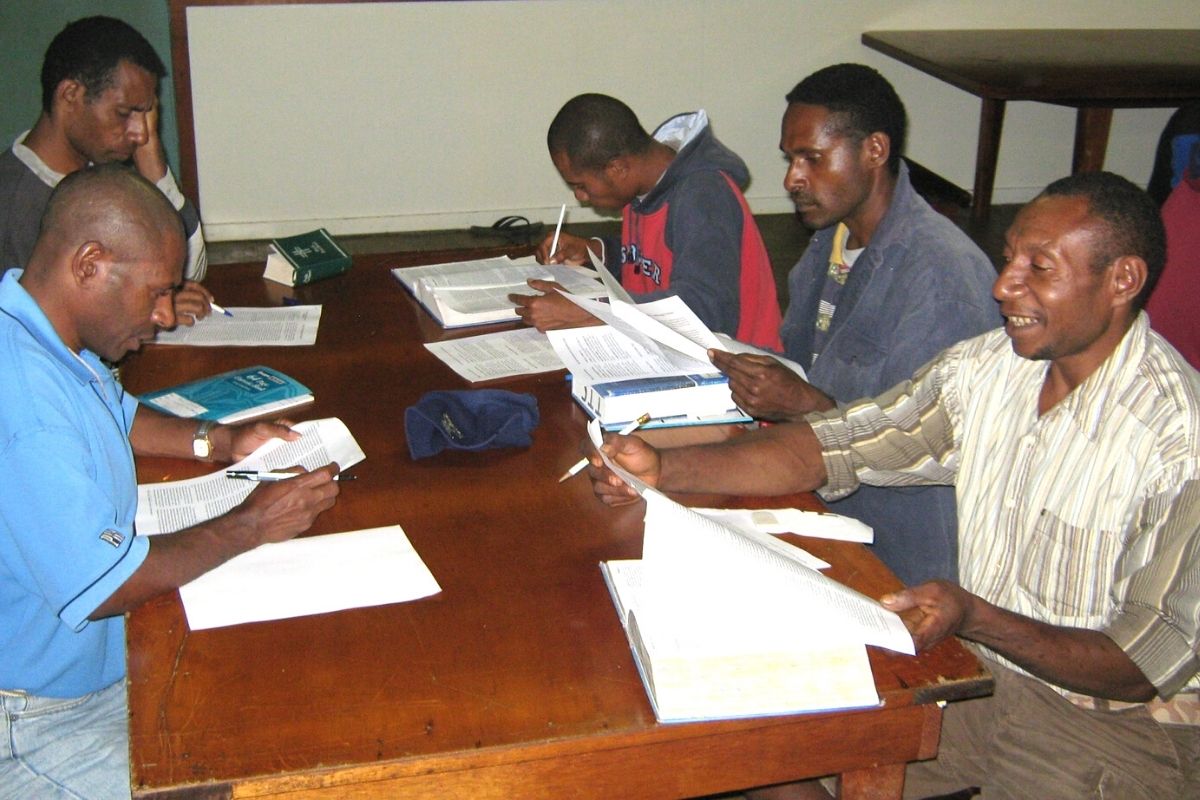
If anyone comes to me and does not hate his own father and mother and wife and children and brother and sister, yes, and even his own life, he cannot be my disciple. Whoever does not bear his own cross and come after me, cannot be my disciple. (RSV) Matthew 10:37; Mark 8:34-35; John 12:25;
This passage is important to all 4 Gospel writers. However, these sections are placed differently according to their emphasis and context.
Luke’s context – The cost of being a minister;
Matthew’s context – Sending out of the Twelve;
Mark’s and John’s context – When Jesus predicted his death;
The writer of Luke’s Gospel uses strong language and mentions that a minister has to dislike father, mother, wife, children, brother, and sister. In Matthew’s Gospel, the writer has omitted wife, sister and brother, and says that he who loves father, mother, son and daughter more than Jesus is not worthy of Him. The writers of Mark’s and John’s Gospels do not mention father, mother, son, daughter, etc.
Except for the writer of John’s Gospel, the writers of the synoptic Gospels (Matt, Mark, and Luke) say that a minister should take up his or her cross and follow Jesus. But all 4 Gospel writers give the impression that if a person wants to be a minister of Jesus, he or she has to give up his or her life for Jesus.
Who can be a Minister of Jesus?
The 4 Gospel Bible passages clearly teach us that a minister of Jesus must be fully committed to Jesus and His Gospel. Then what is the role of the ministers’ families? What is the role of their spouses?
Here we have to accept the fact that even the Gospel writers had their own stances on these questions. In this regard, how can we understand disliking one’s family members according to Luke’s Gospel? I have realised that, as Asians, it is not difficult for us to understand this. This hating is to get rid of unnecessary attachments. This is to get rid of tanha (unnecessary attachment, longing, desire, greed, etc.). This is the cost of discipleship.
Does this mean that the minister should not take care of his or her family? Not at all. But if a minister could get rid of this unnecessary attachment, he or she would be able to look after his or her family better.
How can a minister get rid of this unnecessary attachment? To do this, a minister has to hold everything in the right perspective. At times, the ministers try to have an unnecessary attachment towards the ministry and develop tanha towards it.
As a result of this, they may become “I” specialists. In this process, they often think that they are the most important people in God’s ministry and neglect their families. They are tempted to think that they are irreplaceable.
When a minister develops an unnecessary attachment towards their ministry, he or she often avoids their attachment towards their family, which results in neglecting family responsibilities. And so, the minister may end up in a wrong relationship due to this unwanted attachment.
Balancing Responsibilities
There are also a few who over-emphasise a minister’s responsibility towards his or her family. When the ministers of God follow this path, they may end up neglecting their ministerial responsibilities. Also, this kind of tanha may restrict the freedom of the spouse and the children in the minister’s family.
A minister should maintain his or her family in consultation with his or her spouse, and responsibilities need to be shared equally between both husband and wife, which would include the responsibilities of grown-up children as well.
Taking Up One’s Cross
As the minister of Jesus, we are called to take up our own cross and also the burden of others willingly. This includes the realisation to fulfil the responsibilities without grumbling. The Cross teaches us to wrestle with difficult issues in our lives and fulfil God’s will in the same way as Jesus wrestled in the Garden of Gethsemane and accepted that not His will but the will of God be fulfilled.
According to this text in Luke’s Gospel and parallel texts in the other 3 Gospels, the minister of Jesus must get rid of unnecessary attachment towards not only his or her family or any other thing or person, but also his or her own life. This is the highest point of what is called ‘renunciation’. The text in John’s Gospel explains this beautifully and says that only when a grain of wheat falls to the ground and dies can it produce many seeds.
Cultivating Christ-centred families
For the ministers of Christ, the family should be part and parcel of the ministry. They should cultivate Christ-centred values and attitudes in the family. Neglecting these values and attitudes would result in stunted growth or no growth at all.
So, it is very important for a minister to discuss these values and attitudes with his/her spouse at the beginning of the marital journey. One must realise that it is not too late to have a mutual understanding with his/her spouse to have a fulfilling and mutually enriching family life.
During this Lent, as ministers, we need to make efforts to keep the balance between the ministry and our family. These responsibilities are not different aspects of our lives but like two sides of the same coin. Let us balance our responsibilities, take up our cross and cultivate Christ-centred families.
Photo by kahunapulej on Flickr







